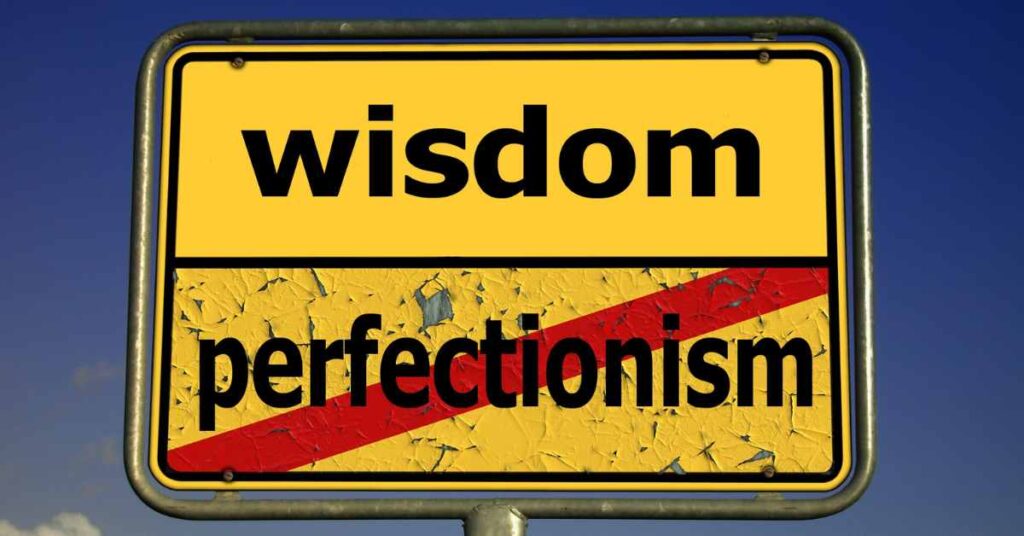
5 Myths about Self-Compassion: Understanding the Challenges and Transformative, Healing Power of Self-Compassion with Birmingham Trauma Specialist.
“By giving ourselves unconditional kindness and comfort while embracing the human
experience, as difficult as it is, we avoid destructive patterns of fear, negativity, and isolation.”
-Kristin Neff
In today’s fast-paced world, there are so many pressures, obligations, and expectations constantly looming over us. The obligation to perform, achieve, excel; the pressure to meet the milestone, check the box, or fit in the box; cultural, societal, and systemic expectations that we didn’t get a say in… it’s all too easy to forget the most essential aspect of our existence: ourselves.
We may take ourselves to the spa, go on a vacation, or have a regular “self-care” routine. While this might bring some relief, you may find that relief doesn’t last as long as you’d hoped. That’sbecause these relaxing acts don’t address the way you see yourself, how you speak to yourself, or how that shows up in your interactions with others.
Self-care is about treating yourself kindly, self-compassion is regarding yourself with compassion.
As Acceptance and Commitment Therapy (ACT) practitioners, we at Empower Counseling know the power of mindfulness and self-compassion in cultivating emotional resilience, inner peace ,and overall well-being. However, we acknowledge how difficult practicing self-compassion can be for many individuals, especially those struggling with anxiety, depression, perfectionism, eating disorders, trauma recovery, etc. Let’s take a look at why this is the case, what mindful self-compassion really is, and how it can move us toward a more meaningful, fulfilling life.

5 Common Myths About Self-Compassion: What it’s Not
Self-compassion has emerged as a powerful practice for cultivating resilience, emotional well-being, and self-acceptance. Yet, despite its growing research and evidence base, self-compassion remains shrouded in misconceptions and myths that hinder its understanding and adoption/application in day-to-day life. To normalize this practice, let’s debunk five common myths about self-compassion and shed light on its transformative power.
Myth about Self-compassion #1: Self-compassion is self-indulgent.
One of the most pervasive myths about self-compassion is the belief that it’s synonymous with self-indulgence or self-pity. In reality, self-compassion involves treating oneself with kindnessand understanding, especially in moments of struggle or suffering.
It’s about acknowledging ourpain and offering ourselves the same care and support we would offer to a friend in need. Farfrom being self-indulgent, self-compassion is an essential practice for fostering resilience and emotional well-being.

Myth #2: Self-compassion is weak or self-pity.
Another common misconception is that self-compassion is a sign of weakness or self-pity. In truth, self-compassion requires courage and strength—it takes bravery to confront our inner struggles with kindness and understanding. Rather than avoiding or suppressing difficult emotions, self-compassion empowers us to acknowledge our pain with courage and resilience.
Far from being a sign of weakness, self-compassion is a testament to our capacity for self-love and inner strength.
Myth #3: Self-compassion is selfish.
Some people believe that practicing self-compassion is selfish or self-centered—that by focusing on our own needs and well-being, we neglect the needs of others.
However, research has shown that self-compassionate individuals are more empathetic, compassionate, and altruistic towards others. By nurturing ourselves with kindness and care, we replenish our innerresources, enabling us to show up more fully and authentically for others. Far from being selfish, self-compassion is a foundation for healthy relationships and genuine compassion towards others.
Myth #4: Self-compassion is the same as self-esteem.
While self-compassion and self-esteem are related concepts, they are not interchangeable.
Unlike self-esteem, which often hinges on external validation and achievement, self-compassion is based on an unconditional acceptance of oneself, flaws, and all. Self-compassion doesn’t depend on success or approval—it’s available to us in every moment, regardless of our circumstances.
Rather than bolstering our ego or sense of superiority, self-compassion fosters a deep sense of self-acceptance and inner peace.
Myth #5: Self-compassion is passive.
Some people mistakenly believe that self-compassion is a passive or resigned acceptance of one’s circumstances. However, self-compassion is far from passive—it’s an active and dynamic practice that empowers us to respond skillfully to life’s challenges.
By acknowledging our pain with kindness and understanding, we gain the clarity and resilience needed to take positiveaction towards change. Far from being passive, self-compassion is a catalyst for growth, healing, and transformation.

So, what is self-compassion?
Now that we know, what self-compassion is NOT, let’s explore what it is. Self-compassion, as pioneered by Dr. Kristin Neff involves treating oneself with the same kindness, care, and understanding that one would offer to a close friend in times of suffering or difficulty. It encompasses three core components: mindfulness, common humanity, and self-kindness.
Mindfulness
The cornerstone of this practice and Acceptance and Commitment Therapy, involves being present in the moment, acknowledging one’s thoughts and emotions without judgment. By cultivating mindfulness, individuals can develop a greater awareness of their inner experiences, including feelings of pain, inadequacy, or self-criticism.
Self-compassion requires taking a balanced, mindful approach to our suffering so that we neither suppress or exaggerate it. Treating ourselves like we would a friend means we step outside our usual way of looking at things, putting our own situation into better perspective.
Mindfulness allows us to turn toward our pain with acceptance of the present moment reality.
It prevents us from becoming “over-identified” with difficult thoughts and feelings, so we aren’t swept away by negative reactivity.
Human Experience
Common Humanity recognizes that suffering is an inherent part of the human experience. Instead of feeling isolated in our struggles, mindful self-compassion reminds us that we are not alone in our challenges. This sense of shared humanity fosters connection and empathy, reducing feelings of shame or isolation.
Self-compassion is rooted in our common humanity. When we struggle or make mistakes, there’s often an irrational but pervasive sense of isolation – as if “I” were the only person in the world having this painful experience.
All humans suffer, however. Not the same way or the same amount, but the very definition of being “human” means being vulnerable, flawed and imperfect. When we are self-compassionate, we recognize that our suffering connects us ratherthan separates us from others.

Self-kindness
Self-kindness involves treating oneself with warmth, understanding, and acceptance, especially in moments of difficulty or failure. Rather than harsh self-criticism or self-blame, practicing self-kindness involves offering ourselves the same compassion and encouragement we would offer to a loved one.
Self-compassion means being kind and understanding toward ourselves when we suffer, fail, or feel inadequate, rather than ignoring our pain or flagellating ourselves with self-criticism. We’re warm and supportive when confronted with the imperfection of life rather than cold or harsh.
We’re helpful and encouraging, like a good friend, coach or mentor would be. This inner support allows us to feel safe and puts us in a better frame of mind to cope with challenges or make needed changes in our lives.
How to Start Your Own Self-Compassion Practice
While practicing self-compassion may be challenging, it is a journey well worth embarking on.
By recognizing and overcoming the obstacles that stand in our way, we can cultivate greater self-compassion, resilience, and well-being. Remember that self-compassion is not a sign of weakness, but rather a courageous act of self-care and self-love. As we extend compassion to ourselves, we pave the way for healing, growth, and a deeper sense of connection with ourselves and others.
Here are 5 ways you can bust myths about self compassion take to do just that:
1. Challenge your inner critic:
Recognize when your inner critic is at its loudest and challenge its destructive narratives. Replace self-criticism with self-compassionate language, offering yourself the same kindness and understanding you would offer to a friend in need.
2. Practice Mindfulness:
Mindfulness practices can help you become more aware of yourinner experiences without judgment. By cultivating mindfulness, you can observe your thoughts and emotions with greater clarity and respond to them with compassionrather than criticism.
3. Cultivate Self-Kindness:
Start small by incorporating acts of self-kindness into your daily routine. Whether it’s taking a moment to pause and breathe, treating yourself to something you enjoy, or offering yourself words of encouragement, every act of self-kindness is a step towards greater self-compassion.

4. Embrace imperfection:
Let go of the unrealistic standards of perfection and embraceyour imperfections as part of what makes you human. Remember that you are worthy of love and compassion, not in spite of your imperfections, but because of them.
5. Seek support:
Don’t be afraid to reach out for support from friends, loved ones, or mental health professionals. Sharing your struggles with others can help alleviate feelings of isolation and provide you with the encouragement and validation you need to cultivate self-compassion.

Empower Counseling Can Offer That Support
The integration of self-compassion into Acceptance and Commitment Therapy enhances its effectiveness and depth, fostering greater emotional regulation, self-acceptance, and commitment to values.
By cultivating self-compassion alongside the principles of ACT, individuals can embark on a journey of self-discovery and transformation, leading to greater psychological well-being and fulfillment.
As we embrace ourselves with kindness and compassion, we pave the way for healing, growth, and ultimately, a life of meaning and purpose.
EMPOWER COUNSELING PROVIDES YOUR BIRMINGHAM THERAPISTS TO HELP YOU CREATE LASTING CHANGE
At Empower Counseling, we recognize how difficult creating positive change can be. Our counselors are trained in Acceptance Commitment Therapy and can provide the compassionate, encouraging support that may not be available from others in your life.
Kathryn, Marti, Savannah, and Lucia can assist you in navigating change and discover how to live the life you really want.
Your team at Empower also offers counseling for depression, anxiety, eating disorders, bipolar, women’s issues, trauma/PTSD, and perfectionism. Kathryn offers life coaching and executive coaching. Both Savannah and Marti also offer EMDR in Birmingham, AL.
We offer our services online throughout the state of Alabama and in person in our Mountain Brook offices to teens , counseling for college students at Samford University, The University of Alabama, Auburn University, and all colleges in the state of Alabama, young adults, adults, and professionals.
Empower Counseling id located at Office Park in Mountain Brook right off of Hwy 280.
We’re happy to announce that both Marti and Savannah now offer EMDR therapy.
It is easy to get started.
1. Click here to send us a request for a free consultation or your first appointment.
2. Get to know your new therapist, Savannah.
3. Begin moving away from anxiety and toward a more peaceful life.
WRITTEN BY SAVANNAH BECOTTE
Hi, I’m Savannah, a Birmingham therapist specializing Trauma-Focused Acceptance and Commitment Therapy in addition to Eye Movement Desensitization and Reprocessing Therapy(EMDR).
I specialize in working with trauma, PTSD, anxiety, depression, relationship issues, low self-esteem, and difficult life transitions. I help individuals who have defined themselves by trauma unhook from the past, learn to live in the present, so they can enjoy and appreciate the future.
I’m here to meet you where you are right now and help you create healthier, more fulfilling relationships with others and yourself, thus giving you a more fulfilling life.
